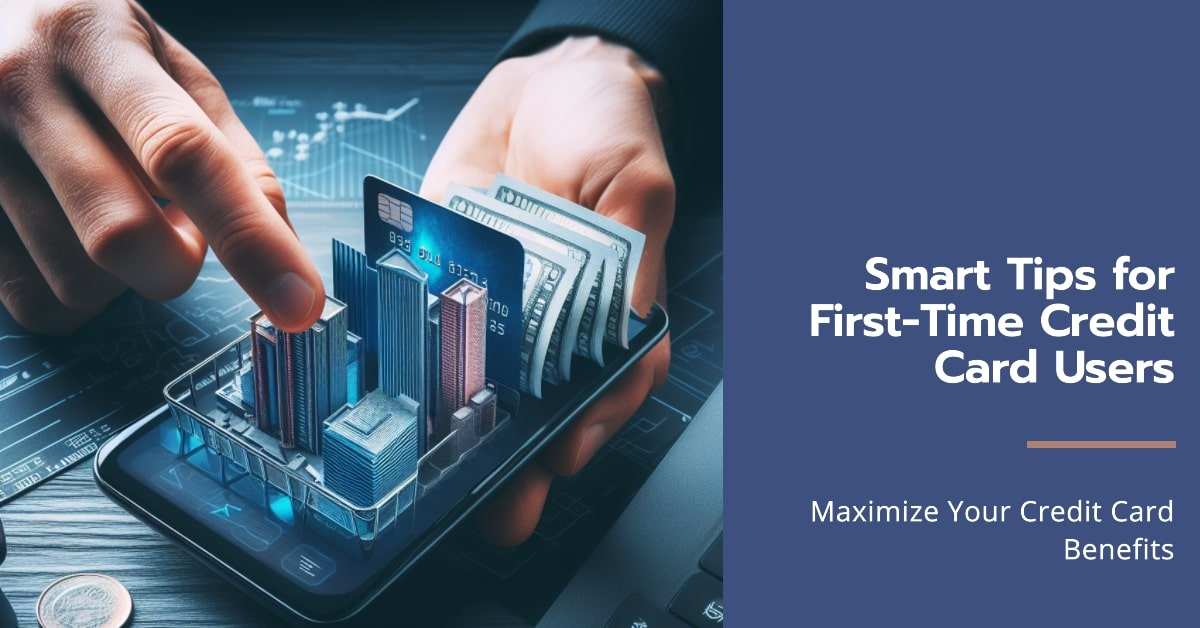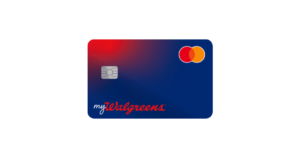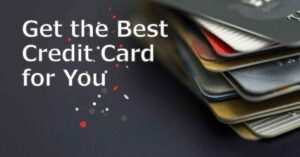
Credit cards are convenient and powerful tools that can help you pay for your purchases, earn rewards, and build your credit score. However, they also come with risks and responsibilities that you need to be aware of and handle carefully. If you are a first time credit card user, you might be feeling excited, nervous, or overwhelmed by the new financial opportunity and challenge. How do you use a credit card wisely and avoid common pitfalls such as overspending, missing payments, or accumulating debt? How do you choose the right credit card for your needs and goals? How do you protect your credit card from fraud and identity theft?
In this article, we will answer these questions and provide some tips and advice for first time credit card users to help you manage your credit card responsibly and build a good credit history. By following these tips and advice, you can enjoy the benefits of credit cards without falling into the traps of credit card debt and bad credit.
How to Choose the Right Credit Card for You – Advice for First Time Credit Card Users
The first step to using a credit card wisely is to choose the right credit card for you. There are many types and features of credit cards available in the market, and you need to do some research and comparison before applying for one. Here are some factors to consider when choosing a credit card:
Your credit score:
Your credit score is a numerical representation of your creditworthiness, based on your past and current credit behavior. It affects your eligibility and interest rate for credit cards and other loans. Generally, the higher your credit score, the better your chances of getting approved for a credit card with favorable terms and conditions. If you are a first time credit card user, you might not have a credit score yet, or you might have a low or limited credit score. In that case, you might want to look for credit cards that are designed for people with no or low credit, such as secured credit cards, student credit cards, or credit cards with a co-signer. These credit cards can help you build or improve your credit score over time, as long as you use them responsibly and pay your bills on time.
Your spending habits:
Your spending habits are another important factor to consider when choosing a credit card. You need to think about how much and how often you plan to use your credit card, and what kind of purchases you will make with it. For example, if you are a frequent traveler, you might want to look for a credit card that offers travel rewards, such as miles, points, or cash back. If you are a big spender, you might want to look for a credit card that offers a high credit limit and a low interest rate. If you are a frugal shopper, you might want to look for a credit card that has no annual fee and a low or zero foreign transaction fee. You also need to think about whether you will pay your balance in full every month, or carry a balance from month to month. If you plan to pay your balance in full every month, you might want to look for a credit card that has a grace period, which is the time between the end of your billing cycle and the due date of your payment. During the grace period, you will not be charged any interest on your purchases, as long as you pay your balance in full by the due date. If you plan to carry a balance from month to month, you might want to look for a credit card that has a low interest rate and a low or zero balance transfer fee. A balance transfer is when you move your existing debt from one credit card to another, usually to take advantage of a lower interest rate or a promotional offer. However, you should be careful not to use balance transfers as a way to avoid paying your debt, as this can hurt your credit score and cost you more in the long run.
Your financial goals:
Your financial goals are also an important factor to consider when choosing a credit card. You need to think about why you want to use a credit card, and what you hope to achieve with it. For example, if you want to use a credit card to build your credit score, you might want to look for a credit card that reports your activity to the major credit bureaus, such as Experian, Equifax, and TransUnion. If you want to use a credit card to save money, you might want to look for a credit card that offers rewards, discounts, or cash back on your purchases. If you want to use a credit card to finance a large purchase, you might want to look for a credit card that offers a low or zero introductory interest rate for a certain period of time. However, you should be careful not to use your credit card as a substitute for your savings or your budget, as this can lead to overspending and debt.
How to Use a Credit Card Wisely – Advice for First Time Credit Card Users
Once you have chosen the right credit card for you, you need to use it wisely and responsibly. Here are some tips and advice for first time credit card users to help you use your credit card wisely:
Pay your bills on time and in full:
This is the most important tip and advice for first time credit card users. Paying your bills on time and in full every month will help you avoid interest charges, late fees, and penalties, as well as boost your credit score and your credit card rewards. To help you pay your bills on time and in full, you can set up automatic payments, reminders, or alerts from your credit card issuer or your bank. You can also use a budgeting app or a spreadsheet to track your income and expenses, and plan your spending accordingly. If you ever have trouble paying your bills on time and in full, you should contact your credit card issuer as soon as possible and ask for help. They might be able to offer you a payment plan, a hardship program, or a temporary lower interest rate to help you get back on track.
Keep your balance low:
Another important tip and advice for first time credit card users is to keep your balance low. Your balance is the amount of money that you owe on your credit card at any given time. Keeping your balance low will help you avoid interest charges, reduce your credit utilization ratio, and improve your credit score. Your credit utilization ratio is the percentage of your available credit that you are using, and it is one of the major factors that affect your credit score. Generally, the lower your credit utilization ratio, the better your credit score. A good rule of thumb is to keep your credit utilization ratio below 30%, which means that you should not use more than 30% of your available credit at any given time. For example, if you have a credit card with a $1,000 credit limit, you should not use more than $300 of it at any given time. To help you keep your balance low, you can pay your balance in full every month, or make multiple payments throughout the month. You can also request a credit limit increase from your credit card issuer, as long as you do not use it as an excuse to spend more. You should also avoid cash advances, which are when you use your credit card to withdraw cash from an ATM or a bank. Cash advances usually come with high interest rates, fees, and no grace period, which means that you will start accruing interest as soon as you withdraw the cash.
Use your credit card for the right reasons:
Another important tip and advice for first time credit card users is to use your credit card for the right reasons. You should use your credit card as a tool to help you pay for your purchases, earn rewards, and build your credit score, not as a way to live beyond your means, fund your lifestyle, or escape your financial problems. You should only use your credit card for purchases that you can afford to pay off in full every month, or for purchases that are necessary, urgent, or beneficial for your long-term goals. You should also use your credit card for purchases that offer you some protection, such as online shopping, travel bookings, or car rentals. You should avoid using your credit card for purchases that are impulsive, emotional, or frivolous, such as entertainment, dining out, or shopping sprees. You should also avoid using your credit card for purchases that do not offer you any protection, such as gambling, lottery tickets, or illegal activities. Using your credit card for the right reasons will help you avoid overspending, debt, and fraud, as well as maximize your credit card benefits and rewards.
Review your statements and monitor your transactions:
Another important tip and advice for first time credit card users is to review your statements and monitor your transactions. Your statements are the monthly reports that show your credit card activity, such as your purchases, payments, fees, interest charges, and rewards.
Your transactions are the individual records of your credit card activity, such as the date, time, amount, and merchant of your purchases. Reviewing your statements and monitoring your transactions will help you keep track of your spending, budgeting, and saving, as well as spot any errors, discrepancies, or unauthorized charges on your account.
To help you review your statements and monitor your transactions, you can sign up for online banking, mobile banking, or paperless statements from your credit card issuer or your bank. You can also download or print your statements and transactions for your records. You should review your statements and transactions at least once a month, or more frequently if you use your credit card often.
If you notice any errors, discrepancies, or unauthorized charges on your account, you should report them to your credit card issuer immediately and dispute them as soon as possible. This will help you avoid paying for charges that you did not make, as well as protect your credit card from fraud and identity theft.
How to Protect Your Credit Card from Fraud and Identity Theft
Another important tip and advice for first time credit card users is to protect your credit card from fraud and identity theft. Fraud and identity theft are when someone uses your credit card or your personal information without your permission or knowledge, usually to make purchases, withdraw cash, or open new accounts in your name. Fraud and identity theft can cause you financial losses, damage your credit score, and compromise your personal security. To help you protect your credit card from fraud and identity theft, here are some tips and advice for first time credit card users:
Keep your credit card and your personal information safe:
You should keep your credit card and your personal information safe and secure at all times. You should never share your credit card number, expiration date, security code, PIN, or password with anyone, unless you trust them and you initiate the contact. You should also never write down or store your credit card information or your personal information on your phone, computer, or paper, unless you encrypt them or lock them with a password.
You should also shred or destroy any documents that contain your credit card information or your personal information, such as your statements, receipts, or applications, before you discard them. You should also be careful when you use your credit card online, over the phone, or in person. You should only use your credit card on secure and reputable websites, apps, or merchants, and you should always check the URL, the security certificate, and the privacy policy of the website or app before you enter your credit card information.
You should also avoid using public or unsecured Wi-Fi networks, computers, or devices to access your credit card account or to make online purchases, as they might be hacked or infected with malware. You should also use a strong and unique password for your credit card account and change it regularly.
You should also use a firewall, antivirus, and anti-spyware software on your computer and device to protect them from viruses, hackers, and spyware. You should also be wary of phishing emails, calls, or texts that claim to be from your credit card issuer or other legitimate organizations, and ask you to verify your credit card information or your personal information, or to click on a link or open an attachment.
These are usually scams that try to trick you into giving away your credit card information or your personal information, or to infect your computer or device with malware. You should never respond to or click on any suspicious or unsolicited emails, calls, or texts, and you should always contact your credit card issuer or the organization directly to verify their authenticity.
Monitor your credit card and your credit report:
You should also monitor your credit card and your credit report regularly to detect any signs of fraud or identity theft. You should review your statements and transactions as mentioned above, and report any errors, discrepancies, or unauthorized charges on your account as soon as possible. You should also check your credit report at least once a year, or more frequently if you suspect any fraud or identity theft. Your credit report is a document that shows your credit history, such as your credit accounts, your payments, your balances, and your inquiries. You can get a free copy of your credit report from each of the three major credit bureaus, Experian, Equifax, and TransUnion, once every 12 months, through the website www.annualcreditreport.com. You can also get a free copy of your credit report if you are a victim of fraud or identity theft, or if you are denied credit, insurance, or employment based on your credit report. You should review your credit report carefully and look for any errors, discrepancies, or suspicious activities, such as accounts that you did not open, inquiries that you did not authorize, or balances that you did not incur. If you notice any errors, discrepancies, or suspicious activities on your credit report, you should dispute them with the credit bureau and the credit card issuer or the creditor as soon as possible. This will help you correct your credit report, stop the fraud or identity theft, and prevent further damage to your credit score and your credit card.
FAQs: Advice for First Time Credit Card Users
What is a credit score and why is it important?
A credit score is a numerical representation of your creditworthiness, based on your past and current credit behavior. It ranges from 300 to 850, and the higher your credit score, the better your creditworthiness. Your credit score is important because it affects your eligibility and interest rate for credit cards and other loans, as well as your access to other financial products and services, such as insurance, renting, or employment. Having a good credit score can help you save money, get approved for credit, and achieve your financial goals.
How can I build or improve my credit score?
You can build or improve your credit score by using your credit card wisely and responsibly, as mentioned above. Some of the key factors that affect your credit score are your payment history, your credit utilization ratio, your credit history length, your credit mix, and your credit inquiries. To improve your credit score, you should pay your bills on time and in full, keep your balance low, use your credit card for a long time, use different types of credit, and limit your credit applications.
What are the benefits and risks of credit cards?
Credit cards have both benefits and risks, depending on how you use them.
Some of the benefits of credit cards are:
- They are convenient and easy to use, as you do not need to carry cash or checks, and you can pay for your purchases online, over the phone, or in person.
- They can help you build your credit score and your credit history, as long as you use them responsibly and pay your bills on time and in full.
- They can offer you rewards, such as cash back, points, or miles, that you can redeem for goods, services, or travel.
- They can offer you protection, such as fraud prevention, purchase protection, extended warranty, or travel insurance, that can save you money and hassle in case of any problems with your purchases or your credit card.
- They can offer you flexibility, such as grace period, introductory interest rate, or balance transfer, that can help you manage your cash flow and your debt.
Some of the risks of credit cards are:
- They can charge you interest, fees, and penalties, such as annual fee, late fee, over-the-limit fee, or cash advance fee, that can increase your cost of borrowing and reduce your credit card rewards.
- They can tempt you to overspend, as you might not feel the pain of parting with your money, and you might buy things that you do not need or cannot afford.
- They can lead you to debt, as you might spend more than you earn, and you might not be able to pay your balance in full every month, or at all.
- They can damage your credit score and your credit history, as you might miss payments, max out your credit limit, or default on your credit card account.
- They can expose you to fraud and identity theft, as someone might steal your credit card or your personal information, and use them without your permission or knowledge.
Conclusion:
Using a credit card wisely and responsibly is not difficult, but it requires some knowledge, planning, and discipline. If you are a first time credit card user, you should follow these tips and advice for first time credit card users to help you choose the right credit card for you, use your credit card for the right reasons, pay your bills on time and in full, keep your balance low, review your statements and transactions, and protect your credit card from fraud and identity theft. By doing so, you can enjoy the benefits of credit cards without falling into the traps of credit card debt and bad credit. You can also build a good credit history and a good credit score, which will help you achieve your financial goals and dreams in the future.
Advice for First Time Credit Card Users - Post Disclaimer
The information on Advice for First Time Credit Card Users is for general purposes only. While we strive for accuracy, we make no guarantees about the completeness or reliability of the information. We may receive compensation for reviews, but this does not influence our opinions. Always check with the credit card provider for the most current terms and conditions.
By using [Advice for First Time Credit Card Users] information, you agree that [CardAdviceHub] will not be liable for any losses or damages arising from your use of the information provided.






